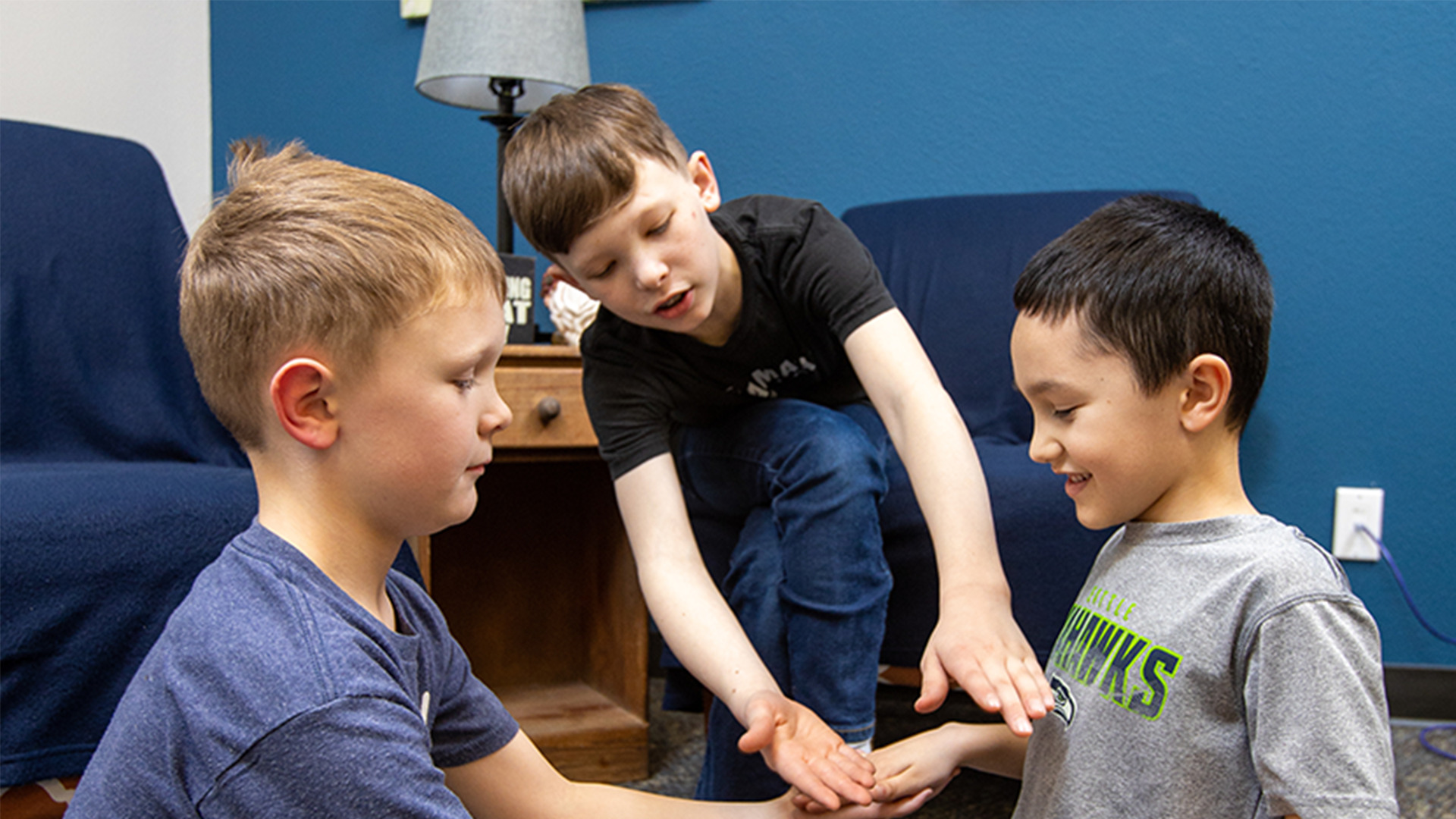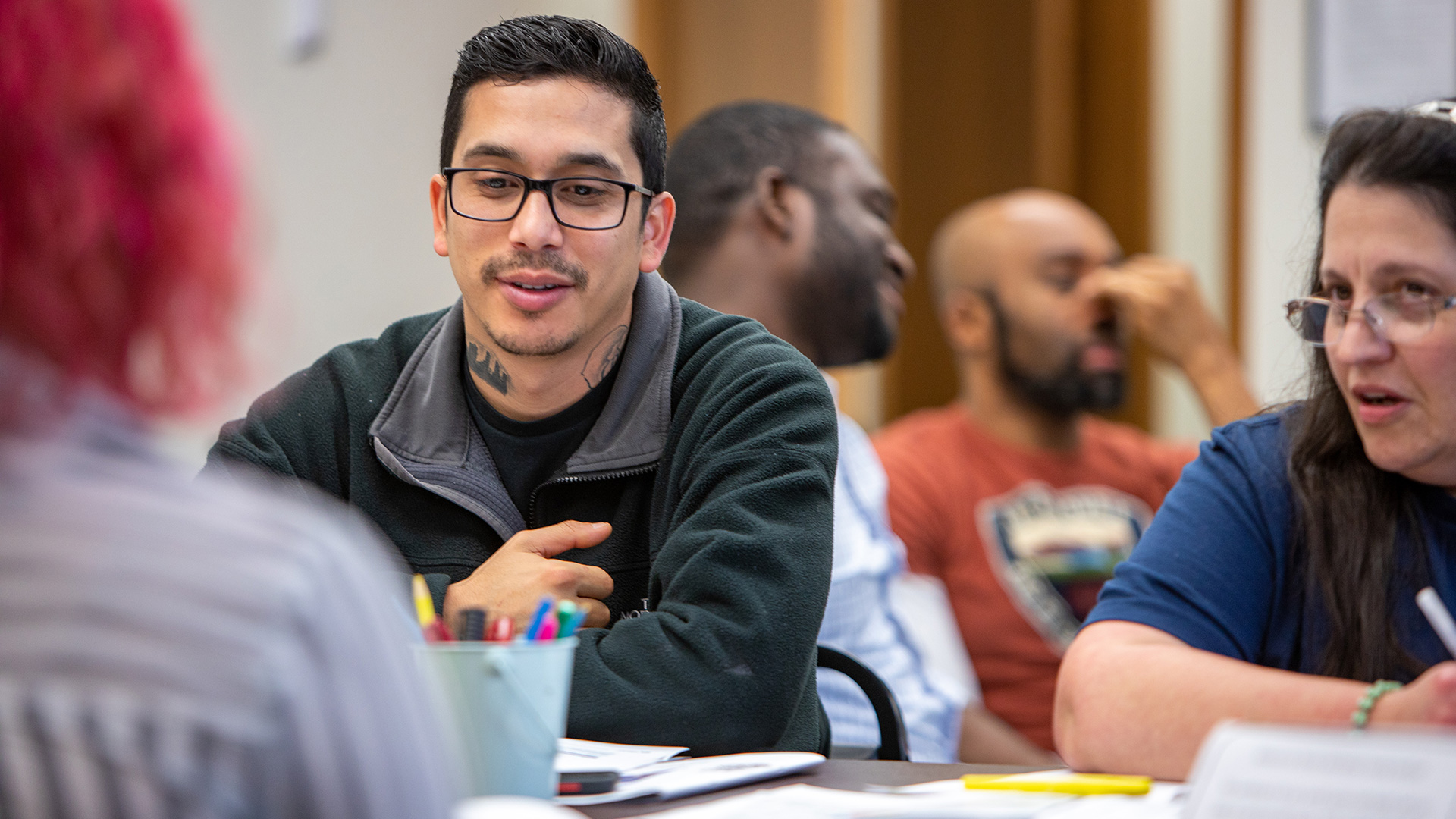Like many in this time, we have been adjusting our plans. We had anticipated starting a new series this past month, but we’ve decided to put it on hold for the moment. We’ll be taking a short break from these posts so that we can focus our energies and creativity on our service fields.
That being said, we wanted to share the beginning of our series with you because it feels extremely relevant and we hope you’ll find it useful in the coming weeks.

This crisis will eventually end, but in the meantime, here are some reminders to create a level of respect and calm for yourself and others by continuing to develop emotional intelligence skills.
Be empathetic.
Try using a “sensing cognitive strategy” by keeping in mind that this event is impacting everyone, not just you and your work. Reminding yourself that you have no idea what other people are going through will center you and can make you a more generous and calm leader.
Stress depletes our immune system. Remember ‘worry’ isn’t an action- it does nothing to change the outcome. It is okay to worry but pay attention when your brain starts to tell you that “you need to worry” or “you should worry.” This is not true.
Major changes to our daily routines and structure will inevitably be disorienting. Show your empathy, optimism, and gratitude for the work people have done. Be thankful for their understanding. This sense of optimism and gratitude will allow solutions and new ideas to emerge. Consider this a time to be grateful that we can access all the information we need to make educated decisions.
Remind yourself and the people you lead to develop a gratitude mindset that you and the people around you are doing the best they can in this time of uncertainty. When anxiety spikes, as it invariably will, remind yourself that empathy is key. We are all in this together and together we will find a way forward.
When you are anxious or nervous, what can you do?
So, when we feel anxiety we can ask ourselves, “What is the outcome I am really looking for?”
Then the anxiety can be reframed as an alert that something important is happening. An emotionally intelligent response is the exploration of emotions and the important messages they share with us. Emotions help us determine what’s important in our lives. The anxiety serves as a signal to evaluate priorities and consider what you want and your options for getting there. Emotions, even challenging ones like anxiety, are data – and can be a catalyst for positive-growth.
What does this look like in action?
Consider the example of heading into a meeting with your boss when you have failed to get an important task done.
- Notice and name the anxiety.
- Encourage the feelings or thoughts associated with the anxiety. (Perhaps how important this job is, how much you enjoy it or don’t enjoy it, how important it is to be organized, what self-limiting belief keeps you from reaching out for help when you’re overwhelmed, etc.).
- Use that information to come up with ways of handling the situation better the next time.
- Utilize ways of navigating the anxiety. (Such as mindfulness, deep breathing, focusing on other essential parts of your job that are going well, and most importantly, self-compassion). This way you will enter the meeting with as much focus and clarity as possible.
There are no good or bad emotions. Emotions are just data.
During these uncertain times here are some things that can help.
Breathe, it is essential for everything and it is free!
- Centering is often just intentional breathing while sitting still (away from noise or distraction). One simple breathing exercise is to equalize your inhale and exhale by counting your inhale then make your exhale match. Put a short pause in between the inhale and exhale (suspend your breath rather than capping it off).
- Reduce stress by turning to aesthetics and find something beautiful to look at, listen to, smell, ingest or create – beautiful things are all around you.
- Laugh! Even in darkness humor can heal.
- Move your body in whatever way feels good.
- Snuggle with your pet if you have one.
- Maintain your normal routines as you’re able.
- Connect with family and friends via phone, facetime or video when at all possible.
- Eat well and stay active.
- Get adequate rest.
- Do enjoyable inside activities such as puzzles, games, cards, etc.
- Employ coping skills that nurture your spirit, like mindfulness exercises or prayer.
While it feels like there is a lot we can’t control, every one of us can make choices to stay emotionally healthy.
Remember, we are members of an ecological system. The nature of this system is to adapt and humans are excellent at adapting. That’s what we are doing right now and we’re good at it.
Best of care,
Sandra Cohen
Join the conversation on our Facebook page!



 Breathe, it is essential for everything and it is free!
Breathe, it is essential for everything and it is free!





